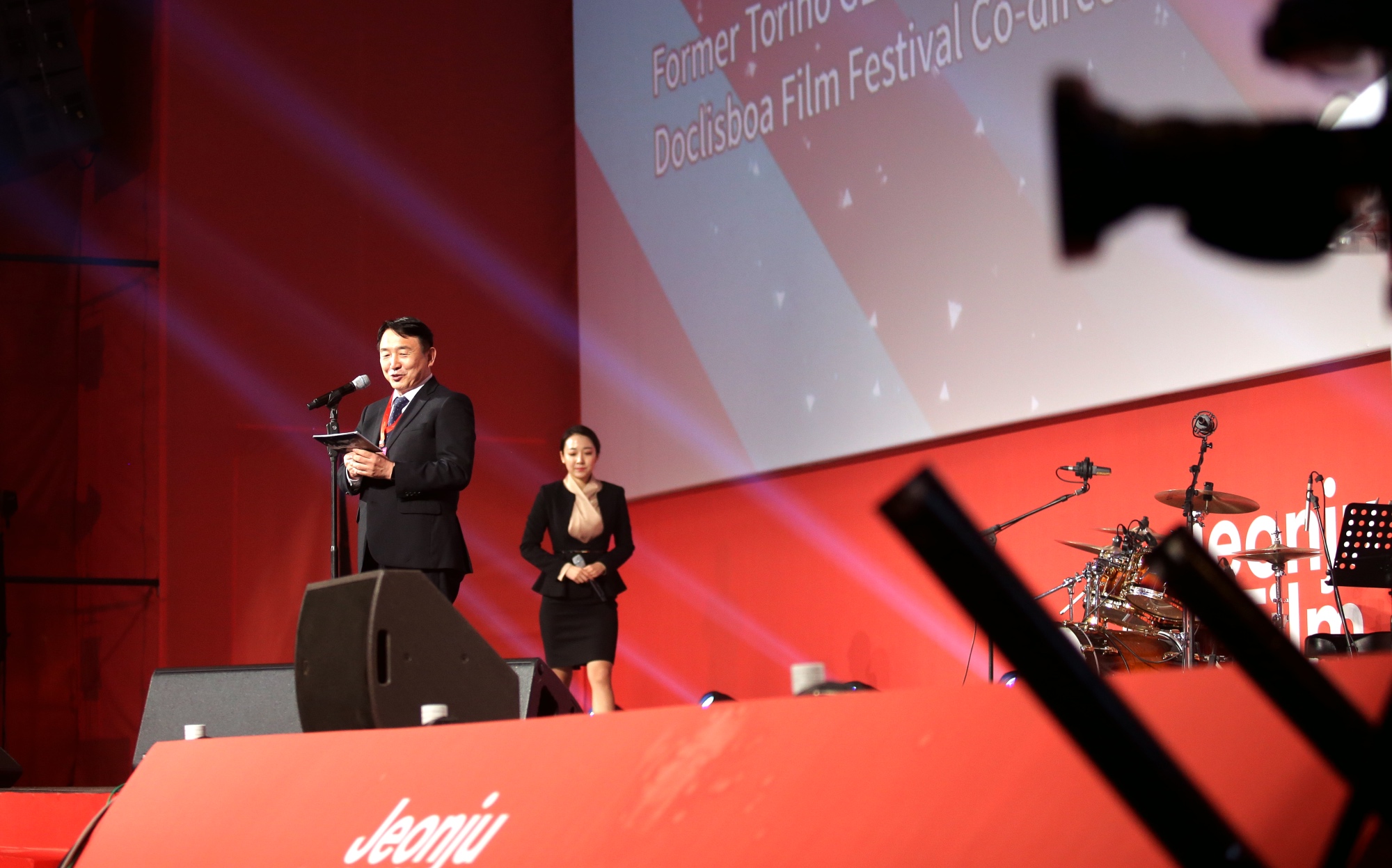
- Festivals
The Jeonju International Film Festival Embraces the World of Film
In a country whose film industry has rapidly – and firmly – established itself as one of the most dynamic in the world, it’s no wonder that the Jeonju International Film Festival, which runs May 3 -12, is quickly finding an international – not just Asian – recognition. The festival takes place in the old town of Jeonju, one and a half hour fast-train ride south of the capital of Seoul, a much smaller town filled with traditional houses, restaurants, walkways, street food and young people often wearing the traditional Hanbok costume strolling its streets and parks.
The 19th edition of the Joenju Festival, the third directed by Lee Choong-jik, presented over 260 titles, including documentaries and shorts, with over 20 jurors coming from all over the world assigning tens of thousands of dollars in cash prizes. In competition are Korean and international features, shorts, and documentaries.
A section called “Cinematology” includes films exploring the study of films and its authors, one film in this section was Marco Ferreri: Dangerous but Necessary, a documentary by Anselma dell’Olio about the late Italian director Marco Ferreri, the controversial author of La Grande Bouffe). Another section called “Jeonju Project Market” supports the production of independent films with up to $90,000 each. There is a market and an impressive video library which includes almost all the titles of the festival, whose slogan this year is “Outlet for Cinematic Expression”. Honoring that vision were films like the daring and X-rated Holiday by Swedish director Isabella Eklof (which shows full frontal naked bodies, including an erect penis, mixing with gangster culture and the mistreatment of women on a beautiful island off the coast of Turkey).
The opening night film was Yakiniku Dragon, a Japanese production directed by Chong Wishing dealing with the discrimination against faced by Korean immigrants in Japan in the 1970s, a film which, explains director Choong-jik, “can be seen as a metaphor of the differences between North and South Korea and the search for reconciliation and peace” which is so strongly felt these days in South Korea, days after the historic meeting of President of South Korean Moon Jae-in and the leader of North Korea Kim Jong-un. Closing the festival was Wes Anderson’s Isle of Dogs. In between was a rich program of experimental films, American films including several titles from the Sundance Film Festival, and especially the best productions from the vital Asian film world. One of the most interesting titles was Ice cream and the Sound of Raindrops by talented young Japanese director Daigo Matsui. The film follows a group of young actors preparing to stage the first Japanese production of the British play Morning by Simon Play, which depicts the struggle of a teenage girl in a small town. It was filmed in one 73 minute tracking shot, repeated four times in the course of one week until the director was satisfied- with the fourth take.
The audience of Jeonju is as enthusiastic as its hundreds of volunteers, while the entire city is taken over by the festival: screenings start at 10 am and go on until past midnight, each single screen full to capacity with young students and lovers of cinema who never walk out of a film and engage for an hour after the movies in deep Q&A sessions when a director is present. Films are screened in the ten comfortable theatres of the CGV complex, eight screens of the Megabox complex, and in the enormous structure Dome raised in the Cinema Village capable of seating 3000 spectators.
“This is a very different festival from the larger Busan,” says the director of the festival Lee Choong-jik, speaking through an interpreter. “The difference is also reflecting two very different towns: Busan is spectacular and big, Jeonju is a small city, so Busan tends to have spectacular and commercial events, filled with international famous guests, while we concentrate on independent films and directors, mostly on their first or second feature, aiming to discover new voices.” Almost 90 percent of the budget of the festival is provided by the city of Joenju and the central government through its very active Korean Film Council (KOFIC) which also contributes to the production of films in the country, a welcome change “thanks to Moon’s government from the past two right wing and corrupt administrations,” as director Choong-jik notices: “Our government today is helping us reflect on our history as a country, and I am very hopeful. It is a miracle,” he adds switching to English, “between Trump and Kim I would have never thought it would happen!”
The enthusiasm shown by audiences at the Jeonju film festival should not surprise, given the rising numbers of the Korean film business: according to ICE, Seoul, last year Korea produced 373 films and imported 1,526, with 217 million spectators setting a record box office of $1.6 billion. In Korea, there are 417 cinemas with a total of 2,424 screens and many of these screens are equipped with four DX projection equipment (the seats move and shake and the audience is assaulted with smells, heat, vapor, wind and even screens on three sides immersing the viewer in a full experience). While dinner theatres and comfortable seats are quite common, there are also smaller screening rooms with real beds, pillows, and blankets to watch a film as if from your own bedroom. In Korea, the medium number of films seen per person in one year is 4.2, the highest level in the world, close to France, according to recent trade analysis. No wonder Sony selected Seoul as the world premiere for Deadpool 2, with Ryan Reynolds promoting the picture heavily in Korea. Korea was one of the first film’s top Asian markets, bringing in $23 million in sales and surpassing Japan ($18 million) and Singapore ($4.4 million).